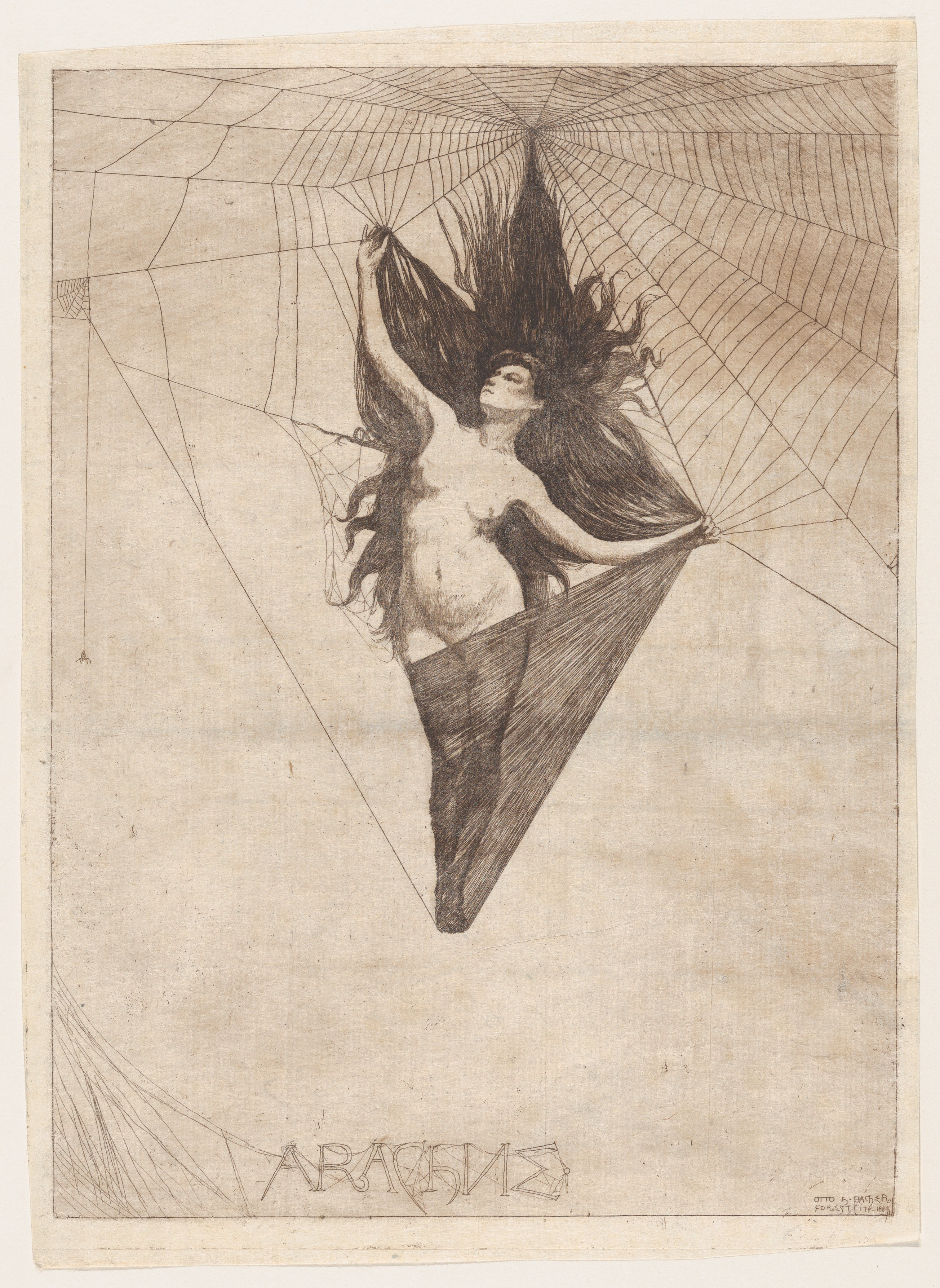Arachne claimed that her weaving skills were greater than those of the goddess Athena, who was not only the goddess of wisdom but also of crafts, including weaving. This claim angered Athena, who decided to confront Arachne.
In some versions of the story, Athena disguised herself as an old woman and warned Arachne to be more humble and not compare herself to the gods. Arachne, however, dismissed the warning and insisted she was the best weaver.
Athena then revealed her true form and challenged Arachne to a weaving contest. Both worked on their tapestries. Athena wove a tapestry depicting scenes that glorified the gods and warned against disrespecting them. Arachne, on the other hand, wove a tapestry that mocked the gods, showing them in unflattering and embarrassing situations.
Though Arachne's work was flawless, her disrespect angered Athena. As a punishment, Athena destroyed Arachne's tapestry and, in some versions of the myth, struck her with a weaving shuttle. Arachne, ashamed and devastated, either took her own life or was transformed by Athena into a spider, so she and her descendants would weave forever.
This myth explains the origin of the word Arachnid in the biology and the world of spiders, their weaving skills, and it also serves as a lesson about the dangers of hubris (excessive pride or self-confidence) and the importance of respecting the gods.

I was wondering to know the origin
ReplyDeleteA very informative and interesting story.
ReplyDeleteSo inoformative thanks for sharing
ReplyDeleteखूप छान ग्रीक लोकांची माहिती त्यांच्यामुळे प्रचलित झालेले इंग्लिश मधील शब्द याची माहिती या ठिकाणी मिळते
ReplyDelete